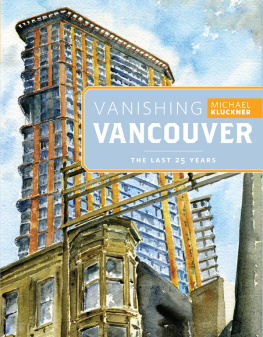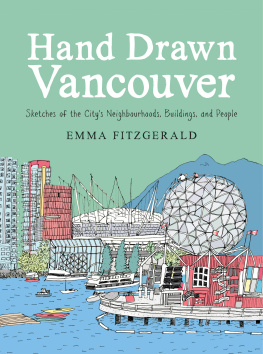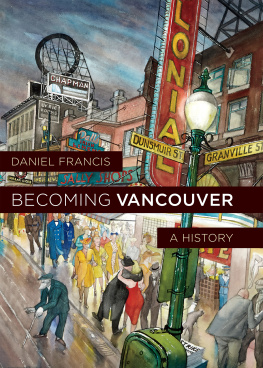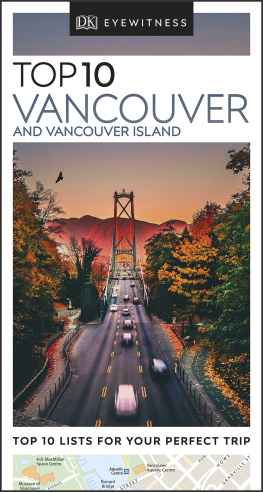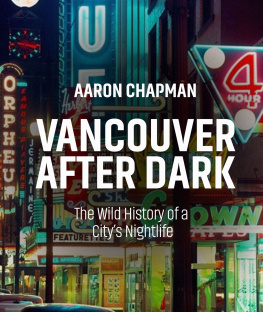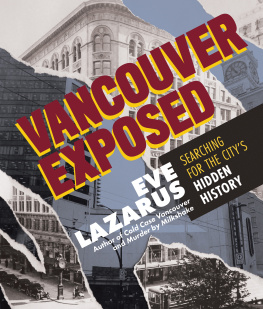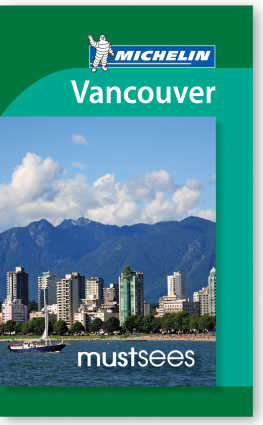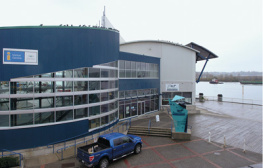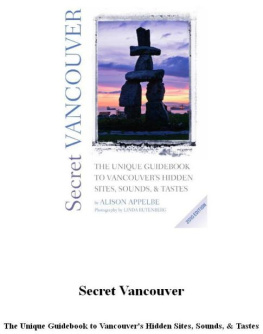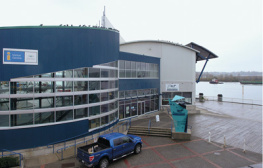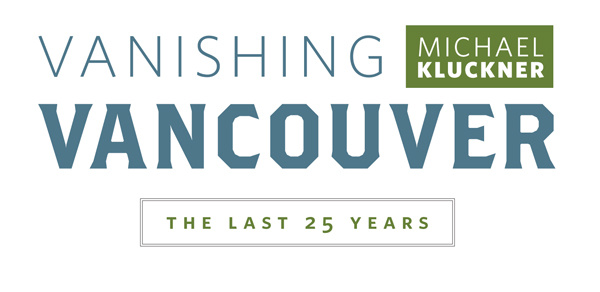

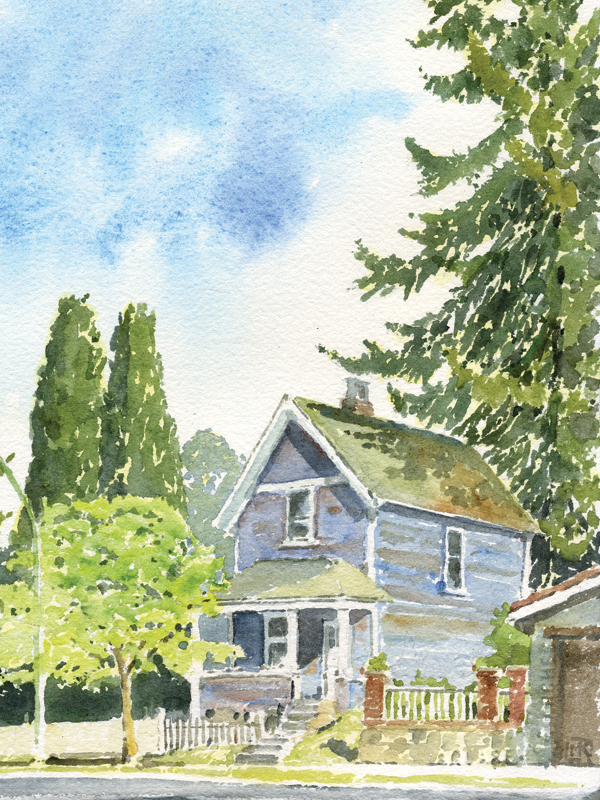
Copyright 2012 by Michael Kluckner
Whitecap Books
All rights reserved. No part of this publication may be reproduced, stored in a retrieval system or transmitted in any form or by any means, electronic, mechanical, photocopying, recording or otherwise, without the prior written permission of the publisher. For more information contact Whitecap Books, at 351 Lynn Avenue, North Vancouver, BC, Canada V7J 2C4 . Visit our website at www.whitecap.ca.
The information in this book is true and complete to the best of the authors knowledge. All recommendations are made without guarantee on the part of the author or Whitecap Books Ltd. The author and publisher disclaim any liability in connection with the use of this information.
publisher : Michael Burch
editor : Theresa Best
artwork and layout : Michael Kluckner
interior design of print edition : Mauve Pag (Page & Design)
editing & design of electronic file : Jesse Marchand
Library And Archives Canada Cataloguing In Publication
Kluckner, Michael
Vanishing Vancouver : the last 25 years / Michael Kluckner.
Includes bibliographical references and index.
softcover isbn 978-1-77050-067-9
pdf isbn 978-1-77050-174-4
epub isbn 978-177050-162-1
1. Historic buildingsBritish ColumbiaVancouver.
2. Vancouver (B.C.)Buildings, structures, etc. 3. Vancouver (B.C.)History. I. Title.
FC 3847.7. K 555 2012 971.1'33 C 2011-908305-1
The publisher acknowledges the financial support of the Canada Council for the Arts, the British Columbia Arts Council, and the Government of Canada through the Canada Book Fund ( CBF ). Whitecap Books also acknowledges the financial support of the Province of British Columbia through the Book Publishing Tax Credit.


For more information about books on Vancouver and its history by the author, please visit michaelkluckner.com.
frontispiece : A remnant of an earlier Vancouver, when houses were small and yards were big, at 28th Avenue and Sophia Street.
You bring your own time to a book, it is not imposed as with film and television. With a book you can stop to think something through, or go back and look at something again if you need to.
david hockney, Secret Knowledge
I regret very much that I have painted a picture that requires description.
winslow homer, responding to a question about the meaning of one of his paintings
So long as I remain alive and well I shall continue... to love the surface of the earth, and to take pleasure in solid objects and scraps of useless information.
george orwell, Why I Write
CONTENTS
MAPS AND PLANS
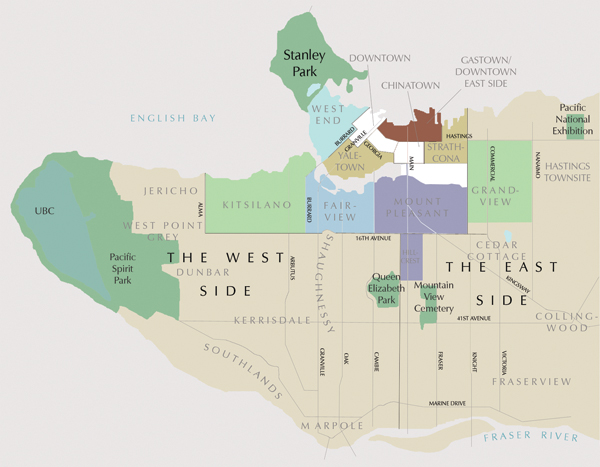
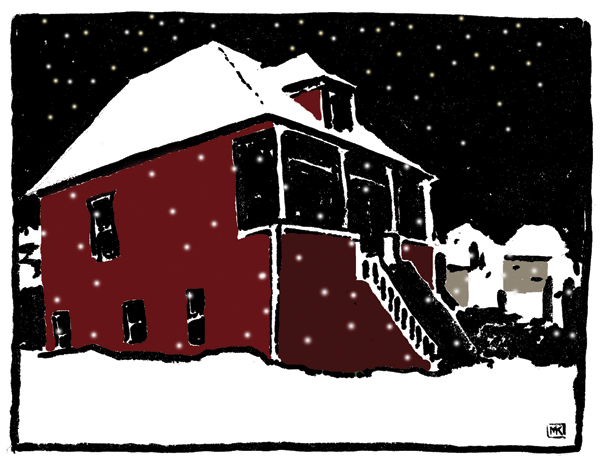
PREFACE
At the beginning of the Winter Olympics my wife, Christine, and I came back to live in Vancouver after more than three years overseas in Australia and a dozen years on a Fraser Valley farm. It was elating! The weather was crisp and bright, so different from sultry summertime Sydney, and all the traffic seemed miraculously to have vanished. Driving was like a trip back to the 1970s, yet unlike in that subdued decade, happy people thronged the streets day and night. From our temporary vantage point in Fairview Slopes, the new towers of the city shimmered in the winter sunshine.
My elation soon faded, however, as sweet February morphed into stormy March and reality resumed. On closer inspection the new Vancouver looked blandseemingly endless ranks of high-rises downtown, relentless pale grey concrete and grey-green glass streaked with rain, squat towers with clipped little plazas occupying every block of the slopes above Granville Island. Most of the quirks and relics I remembered from earlier times had been erasedat 7th and Fir, a blue construction fence edged with wind-blown wrappers and paper cups surrounded the vacant site of an old corner store, a Qubecois bistro when I left. Only the Wicked Caf (two blocks away at Hemlock), once upon a time a corner store, too, remained.
A couple of days after I returned, still disoriented from jet lag, I walked through downtown, along Hastings and into Gastown. Woodwards was gone, or most of it at any rate. Where its modest W had once punctuated the modest skyline, an enormous tower, like something dropped from outer space, loomed over the century-old brick and stone buildings that citizen activism and small-business investment had saved 40 years earlier. It was so out of scalehow had that happened?
Buildings that were almost new when I left were shrouded by tarps, undergoing expensive repair for leaks and rot. It seemed incongruousthe leaky-condo crisis had been identified 20 years earlier, so why were buildings still so poorly constructed?
Yet there were many positive things, like the streetscapes in the old neighbourhoods that were a joy to behold. Bright paint, gardens running right out to the curbs, vintage homes reinvented by young families with their carefully marshalled renovation funds, farmers markets, vegetables growing in allotments along old rail lines and on vacant lotsthere was so much evidence of real conservation and sustainability, of a real environmentalism putting down roots, of a kind of urbanism as profound as the downtown lifestyle that dominated Vancouvers self-image. Perhaps my ennui was just culture shock, part of the long journey of making Vancouver home again.
Twenty-five years ago the quickening pace of change prompted me to begin the original Vanishing Vancouver , published in 1990 by Whitecap Books. In its preface I wrote:
One day in the summer of 1986the Expo summerI was walking through downtown on my way to the old James Inglis Reid shop, which I wanted to paint before it ceased business to make way for an expansion of the Pacific Centre shopping mall. I heard the bell in the clock tower of the old post office at Hastings and Granville sounding the hour, and the cry of seagulls disturbed by its tolling, and was suddenly struck by a wave of nostalgia for all the old times, and all the years that I had been in the city, and a recognition that many pieces of my past were slowly disappearing. For better or worse, I thought, the city is changing irrevocably, and some of the things that have been landmarks in my life will soon be gone.
As the eighties progressed, the cityespecially its residential areasendured a demolition spree. The theme of this earlier Vanishing Vancouver was my anger at the disposal of beautiful houses and gardens, cast away as if they didnt have any value at all. That their replacements appeared inferior to my eyes just compounded the outrage. There seemed to be so little appreciation by residents old and new of Vancouvers houses, no environmental or aesthetic mindset that would guide the builders even into preserving trees.
Next page
